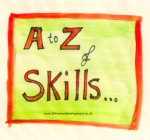
What are Organisational Skills?
Organisational Skills are the ability to manage yourself (and/or others) and resources to reach a specific goal. The skill is a combination of planning and prioritisation (time management).
Why is this skill important to employers?
Individuals who are organised are usually more productive and more efficient at their job. Employers love organised and productive workers. Whether you are interviewing for a new job or hoping to impress your boss being organised is essential for progression, trust and confidence as well as your day to day job.
How can you show you have this skill?
If you are already in the job your organisation skills can be shown through your working practices: such as organising yourself or your colleagues to meet deadlines, prioritising (and reprioritising) your workload, and dealing with pressure. Even a simple thing like having a clean and organised desk can make a great impression.
At interview a few organisational skills questions nearly always come up. This could be straight-to-the-point questions like “How do you prioritise your time?” It would then be open to you to describe the levels of prioritisation that you use in your industry and why. Alternatively you may get a scenario questions which would start “tell me about a time…” or even a question about what tools you use to organise your time. The easiest way to answer this question is to have a system in place and use it.
Skill Development Plan – Get more organised (and deal with Pressure)
By being more organised you can remove a lot of bad unwanted pressure and stress from your job and the workplace environment.
DIY Action Points:
Here are two things you can do straight away to do this:
- Declutter your desk (and create a filing system if you don’t already have one). Hours can potentially be lost looking for things or overlooking things that should have been readily available or accessible. Decluttering your desk and/or filing system can improve efficiency, save time and reduce stress.
- Use one planner (ideally a calendar and to do list) for EVERYTHING work related so that information does not go missing, if you are given a job to do verbally make sure you write it down on your to-do list. If you already have an increasing workload, don’t be afraid of asking when work needs to be done by or asking about prioritisation. Again, monitoring and adjusting your priorities and workload you can develop great organisational skills, and feel less pressured/stressed because you are much more in control.



